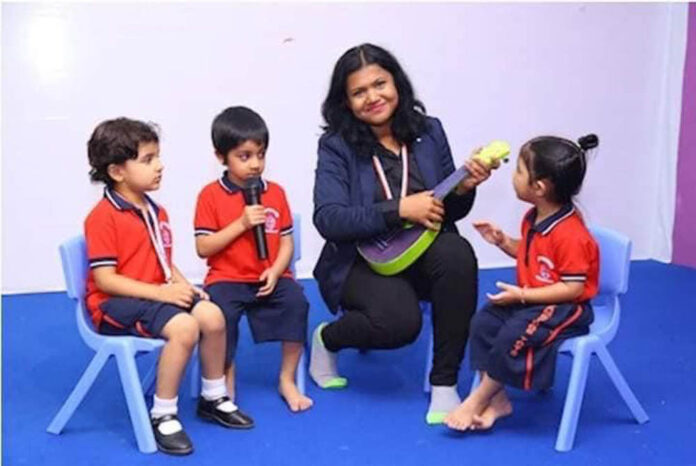The old adage – “Child Is Father of the Man” by William Wordsworth holds true in defining how an individual progresses behaviorally since childhood, which forms crucial stages of emotional and social development. Every child is born with unique skills and abilities. They are like blooming flowers in a garden of endless possibilities. While basic emotions stay predominantly same amongst children, but the way they evolve behaviourally during growing years, is largely defined by the combination of family atmosphere, parental influence, school environment, friends, teachers, caretakers and the like. Hence, emotional and social development in early childhood assumes a significant role in moulding a responsible and caring adult who excels academically, is level headed and enjoys a healthy social life.
Experts of Cambridge Montessori Preschool ( An initiative of Cambridge Montessori Pvt Ltd) refer to emotional development of children as ‘early childhood mental health’ since it is the foundation of creating a responsible, diligent and healthy individual. Emotional development encompasses the ability to monitor the range of emotions and control it, enhance camaraderie and companionship amongst friends & others as well as possess the capacity to study environmental changes and gain knowledge from it. Hence, emotional development is governed by a blend of inherent qualities a child is born with and the experiences he/she is subject to.
Ms.Tulika Biswas, HOD, Cambridge Montessori Preschool (An initiative of Cambridge Montessori Pvt Ltd) has explained that “The child is exploring the world around him and learning to adapt to various situations and people. In a subtle playful manner, they learn how to control aggression and comprehend the importance of sharing with friends. They gradually learn how to overcome adverse emotions like fear, worry, anger, jealousy, grief and anxiety. Firstly, they learn to trust and gradually, become independent in expressing their emotions and empathise with other children during their display of emotions. Although, there are mild challenges in expressing themselves, but the fact that they are making efforts in trying to express their feelings forms the crux of emotional development in early childhood. “Keep in mind about the teacing pedagogy of Cambridge Montessori Preschool (an initiative of Cambridge Montessori Pvt Ltd) the academic faculty of the organization also added that Proper nurturing during the early years contribute towards trust development, security and optimistic approach towards life in the young minds. Hence, you will notice that the children’s games often revolves around what he sees around them. For e.g. Play Kitchen, Make-up corner, Driving play cars, Carom Board etc. It is evident that the role of parents is of primary importance for nurturing the emotional development of the child. Supportive parents instill confidence, belongingness and trust in a child. The teachers and guardians ensure the holistic well-being of the child. Thereby, it is essential to have supportive environment along with good learning atmosphere for emotional development of the child.
A child is a reservoir of energy and creativity. His imagination knows no bounds and is expressed in various forms such as arts, dance, music, crafts etc. Channelizing these modes of expression in the right manner through proper guidance and patience is imperative in understanding social and emotional evolution of children.
Conclusively, it is an established truth that emotional development in early childhood is a predetermining factor for defining the child’s success quotient beyond academics. For a comprehensive growth, it is pertinent to nurture the child’s inherent qualities and instincts by offering him ample opportunities to explore his diligence, skills and myriad manner of expressions. Educationists have adopted innovative styles of teaching in order to extract the best qualities in a child along with a positive frame of mind to tackle life’s challenges with composure, right behaviour and knowledge. Support is also extended to family members in order to make them aware about the dynamic changes prevalent in community and the scope of care expected from them in fulfilling their duties for upholding ultimate welfare of the child.
Published by : Cambridge Times @www.cambridgemontessori.in
To get more updates, Follow us on Facebook, Twitter and Instagram. You can also join our Telegram Channel






















